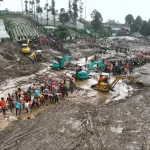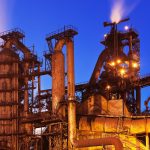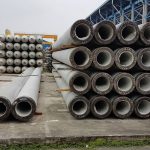Liga Asuransi – Dear readers, how are you? I hope your business is running well.
Welcome to all the new readers. In this blog, we focus on discussing risk management and insurance.
As a senior insurance broker, this time, I want to discuss the third-party liability risks of industrial plants. If they are not managed properly, they can cause substantial financial trouble.
To start the discussion, please read the following short story about an accident that caused tremendous financial loss.
If you are interested in this article, please share it with your friends so they can understand as you do.
Rahmat was excited to visit his friend, who worked at a chemical plant on the city’s outskirts. As a chemist himself, Rahmat was thrilled to witness the plant’s operations firsthand and learn more about the chemicals they produced. However, his excitement was short-lived.
A loud explosion rocked the air as they walked through the plant. Before they could react, a wave of chemicals sprayed out of a broken pipe, hitting Rahmat directly in the face. He screamed in agony as the chemicals burned through his skin and eyes.
His friend quickly called for help, and Rahmat was rushed to the hospital, where he was treated for severe chemical burns. The doctors said that he would have been permanently blinded if he had been exposed to the chemicals for a few more seconds.
Rahmat’s life was never the same after that incident. He had to undergo numerous surgeries to repair the damage from the chemicals, and his face and body were scarred for life. He had to quit his job as a chemist and could no longer pursue his passion for chemistry due to the trauma he experienced.
The chemical plant was found to be at fault for the incident, and Rahmat received compensation for his injuries. However, no amount of money could make up for the pain and suffering he endured. He realized that safety should always be taken seriously, especially in high-risk environments like chemical plants.
From that day forward, Rahmat advocated for workplace safety and spoke out against companies that put profit above their workers’ well-being. He knew firsthand the devastating consequences of negligence and wanted to prevent others from suffering the same fate.
THE IMPORTANCE OF PUBLIC LIABILITY INSURANCE FOR INDUSTRIAL PLANTS
Public liability insurance is necessary for industrial plants because it provides essential coverage for third-party claims arising from accidents and injuries that may occur on the plant’s premises. It helps to protect the plant from the financial costs of such claims and demonstrates its commitment to risk management and public safety.
Public liability insurance is essential for industrial plants because it covers third-party claims arising from property damage, bodily injury, or other accidents on the plant’s premises.
In industrial plants, accidents and injuries can happen due to the nature of the work, the use of heavy machinery and equipment, hazardous materials, and other risks. Even with strict safety protocols, accidents can still occur, which is where public liability insurance comes in.
If an accident or injury occurs on the industrial plant’s premises and is found to be the plant’s fault, the plant may be held liable for any damages or injuries suffered by third parties. This can include employees, visitors, contractors, or members of the public who may be affected by the plant’s operations.
Public liability insurance can help to protect the plant from the financial costs of such claims, including legal fees, compensation payments, and other related expenses.
Additionally, many industrial plants are legally required to have public liability insurance as part of their risk management strategy.
This is particularly true for plants that handle hazardous materials or operate in high-risk environments. By having general liability insurance, the industrial plant can demonstrate that it is taking the necessary steps to protect the public and the environment from any harm from its operations.
THE CAUSES OF THIRD-PARTY LIABILITY LAWSUITS AGAINST PLANTS OPERATORS
Industrial plants must identify and mitigate these risks through proper safety protocols, regular maintenance, and employee training. Failure to do so can result in costly third-party claims, legal action, and damage to the plant’s reputation. By prioritizing safety and risk management, industrial plants can protect their employees, visitors, and the environment and prevent accidents and injuries from occurring.
Third-party injuries and property damage at an industrial plant can be caused by a variety of factors, including:
- Equipment Malfunction
Equipment malfunction or failure can cause accidents that result in third-party injuries and property damage. Malfunctioning machinery or tools, such as conveyor belts, cranes, and forklifts, can cause accidents if not properly maintained or operated.
- Human Error
Human error can also cause accidents that result in third-party injuries and property damage. Mistakes in judgment or operation, negligence, or lack of training can all contribute to accidents.
- Environmental Factors
Environmental factors, such as extreme weather conditions, natural disasters, or air and water pollution, can cause damage to third-party property and even result in injuries.
- Hazardous Materials
Industrial plants that handle hazardous materials can pose significant risks to third parties if proper safety procedures are not followed. Chemical spills, explosions, fires, or toxic gas releases can cause severe injuries and property damage.
- Sabotage or Vandalism
Industrial plants may be targets for sabotage or vandalism, which can cause significant damage to the plant and harm to third parties in the vicinity.
PREVENTIVE ACTIONS OF THIRD-PARTY LIABILITY FOR INDUSTRIAL PLANTS
Preventing third-party injury and property damage is crucial for an industrial plant to maintain its reputation, comply with regulations, and protect the safety of its employees and the public. Here are some ways to prevent third-party injury and property damage in an industrial plant:
- Regular Maintenance
Industrial plants should have a regular maintenance program to ensure all equipment and machinery are in good working order. This includes regular inspections, repairs, and replacements to prevent equipment malfunctions that could lead to accidents and injuries.
- Employee Training
Employees should be adequately trained on safety procedures and protocols to prevent accidents and injuries. This includes training on properly using equipment, handling hazardous materials, and emergency response procedures.
- Risk Assessment
Industrial plants should conduct regular risk assessments to identify potential hazards and implement appropriate controls to mitigate the risks. This includes assessing the plant’s physical layout, equipment, processes, and environmental factors.
- Safety Protocols
Industrial plants should have safety protocols in place to prevent accidents and injuries. This includes procedures for handling hazardous materials, emergency response plans, and safety equipment, such as personal protective equipment (PPE) for employees.
- Security Measures
Industrial plants should have security measures to prevent sabotage, theft, and vandalism. This includes installing security cameras, fencing, and access control systems.
- Regular Audits
Industrial plants should conduct regular audits to ensure safety protocols and procedures are followed and identify improvement areas.
- Communication
Industrial plants should communicate potential hazards and safety procedures with the public. This includes providing clear signage, public announcements, and community outreach programs.
By implementing these preventive measures, industrial plants can create a safe working environment for their employees and prevent third-party injuries and property damage.
LAWSUITS CASES AGAINST THE INDUSTRIAL PLANTS IN INDONESIA
Several lawsuits and legal cases have been against industrial plant owners in Indonesia due to third-party injuries and property damage. Here are some examples:
- Freeport Indonesia Pollution
In 2017, the Indonesian government sued Freeport McMoRan, the owner of a large copper and gold mine in Papua province, for environmental damages and pollution caused by the company’s waste disposal practices. The case was settled in 2018, with Freeport agreeing to pay $35 million in damages and improve its waste management practices.
- Citarum River Pollution
In 2018, the Indonesian government sued 10 companies, including textile and food processing plants, for dumping toxic waste into the Citarum River, which supplies water to millions of people in the West Java province. The companies faced fines and legal penalties, and some were ordered to shut down their operations.
- Chevron Pollution Case
In 2019, the Indonesian government sued Chevron Pacific Indonesia, a subsidiary of the U.S. oil company Chevron, for environmental damage and pollution caused by the company’s drilling operations in the Riau province. The case is ongoing, and the government seeks billions of dollars in damages.
- Sumatra Tobacco Plantation Case
In 2020, a group of Indonesian villagers filed a lawsuit against Philip Morris International, alleging that the company’s tobacco plantation in North Sumatra caused water pollution and damaged the villagers’ crops and property. The case is ongoing, and the plaintiffs seek compensation for the damages.
THE IMPORTANCE OF PUBLIC LIABILITY INSURANCE FOR INDUSTRIAL PLANTS
Third-party claims against plant owners can be covered by an insurance policy, precisely a public liability insurance policy. This type of insurance protects businesses from claims made by third parties for injury, illness, or property damage resulting from the company’s operations or products.
A public liability insurance policy can cover many risks, including accidents and injuries caused by industrial plants, such as chemical spills, fires, explosions, or environmental pollution.
Suppose a third party suffers injury or property damage from an industrial plant’s operations. In that case, they may file a claim against the plant owner, who can then claim against their public liability insurance policy to cover legal defense costs and compensation.
It’s important to note that the coverage and limits of a public liability insurance policy may vary depending on the specific terms and conditions of the policy, and not all risks may be covered. Plant owners should carefully review their insurance policies and ensure adequate coverage to protect against potential third-party claims.
WHY DO INDUSTRIAL PLANTS NEED AN INSURANCE BROKER?
Arranging insurance by contacting insurance companies directly or through agents is not recommended because it can lead to limited insurance coverage, uncompetitive premium costs, the use of less secure companies, and the absence of claim settlement assistance.
Industrial plant owners need an insurance broker for their insurance coverage for several reasons:
- Expertise
Insurance brokers are trained professionals with expertise in various types of insurance coverage, including public liability insurance, property insurance, and business interruption insurance. They can help plant owners understand their insurance needs and recommend the most appropriate coverage options.
- Customization
Insurance brokers can work with plant owners to customize their insurance coverage to meet their needs and risks. They can help plant owners identify potential risks and recommend coverage options that address those risks.
- Market knowledge
Insurance brokers have in-depth insurance market knowledge and can help plant owners navigate the complex insurance industry. They can help plant owners compare policies and providers to find the best coverage options at competitive rates.
- Claims assistance
Insurance brokers can assist plant owners in the event of a claim by helping them understand the claims process, submitting and negotiating claims with insurance companies, and advocating on their behalf to ensure they receive the maximum benefits from their insurance policies.
- Risk management
Insurance brokers can help plant owners implement risk management strategies to reduce the likelihood of accidents and insurance claims. They can provide advice on workplace safety, environmental management, and regulatory compliance to help plant owners mitigate risks and prevent losses.
Insurance brokers are critical in helping industrial plant owners identify their insurance needs, customize their coverage options, navigate the insurance market, and manage risks to protect their assets and ensure business continuity.
One of the leading insurance brokers in Indonesia focusing on industrial risks is L&G Insurance Broker.
For all our insurance needs, please call L&G now!
—
LOOKING FOR INSURANCE PRODUCTS? DON’T WASTE YOUR TIME AND CALL US RIGHT NOW
24-HOUR L&G HOTLINE: 0811-8507-773 (CALL – WHATSAPP – SMS)
website: lngrisk.co.id
E-mail: customer.support@lngrisk.co.id
—














